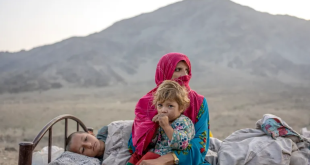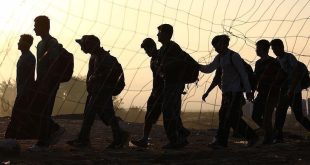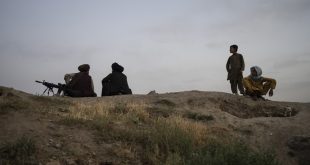By Ajmal Shams
Presidential campaigning
in Afghanistan began last Sunday amid continuing violence and political
uncertainty in a country that has been in conflict for the past four decades.
Only President Ashraf Ghani and Chief Executive Dr. Abdullah Abdullah were able
to kick off their campaign rallies. All others are yet to officially begin
their campaigns. There are 18 presidential hopefuls, but only three — Ghani,
Abdullah and former National Security Adviser Hanif Atmar — are significant.
Looking at the composition of the tickets and ethnic loyalties in Afghanistan’s
electoral politics, it is very likely there will be a run-off. In that
situation, the defeated candidates will join one of the two frontrunners.
Drawing on experience from the 2014 presidential election, this one may well be
fraught with complexities and allegations and counter-allegations of fraud and
rigging by the competing candidates.
The election is scheduled to be held in late September. The timing is critical
due to the ongoing peace process between the US and the Taliban, which looks
likely to bring about a deal. US President Donald Trump is intent on
withdrawing his troops well ahead of the 2020 presidential election, as he
promised during his 2016 campaign. The US seems to be in a real hurry that some
kind of agreement is reached with the Taliban based on two points: The US
withdrawing its troops from Afghanistan in return for commitment and guarantees
from the Taliban that Afghan soil will not be used against the US. An agreement
in principle was reached in previous rounds of negotiations and is likely to be
formalized soon.
Even if an initial agreement is reached between the US and the Taliban, two
other key points — a cease-fire and intra-Afghan dialogue — are yet to be
agreed on. The Taliban have consistently rejected direct talks with the Afghan
government as long as foreign troops remain in Afghanistan. However, once the
initial agreement is reached, there is a strong likelihood the Taliban will
agree to sit with the Afghan government for talks. Some analysts believe the
upcoming presidential polls may be postponed in view of the possible peace deal
and an interim government may be established with the participation of the
Taliban. Such uncertainties have led to a general lack of public interest in
the upcoming vote. However, Ghani’s administration has repeatedly rejected the
idea of any interim setup instead of the planned election.
The key question is what
is Afghanistan’s priority? Is it peace, an election or both? While elections
are a regular exercise of the democratic process, peace is a vital need for
Afghans. Many Afghans think there would be no harm if the election was further
delayed for the sake of a peace deal with the insurgents. However, postponing
the election would have an adverse impact on the political stability of the
country. The leaders of the national unity government believe an elected
government will be in a much stronger position to sit at the negotiating table
with the Taliban.
One of the major threats to the upcoming presidential polls is the nonstop
violence that has been taking the lives of a large number of civilians, as well
as Afghan security forces and the insurgents. The government will have to take
extra measures to ensure the election is peaceful, otherwise the credibility of
the polls will be questionable.
The Afghanistan Independent Election Commission must ensure its neutrality so
that a free and fair election is held. It must provide a level-playing field
for all candidates. Ghani and Abdullah have the advantage of being in
government and running as candidates but there is nothing untoward about this,
as Afghanistan’s constitution does not call for any interim setup before
holding an election. It somehow resembles the American form of government but
is no match to an established democracy like the US, with its strong
institutions that ensure an election’s transparency and legitimacy. Being a
young democracy, Afghanistan’s institutions are still evolving, but it is
important to set good examples by preventing the irregularities that occurred
during the last parliamentary election.
Whoever wins the upcoming presidential election — if it does go ahead — must
ensure that bringing peace is the topmost priority. Without peace, any exercise
of democracy will be meaningless for Afghans.
- Ajmal Shams, based in Kabul, is president of the Afghanistan Social Democratic Party. He was a deputy minister in the national unity government, and served as policy adviser to Ashraf Ghani before his presidential bid. Twitter: @ajmshams
 Afghanistan Times
Afghanistan Times




